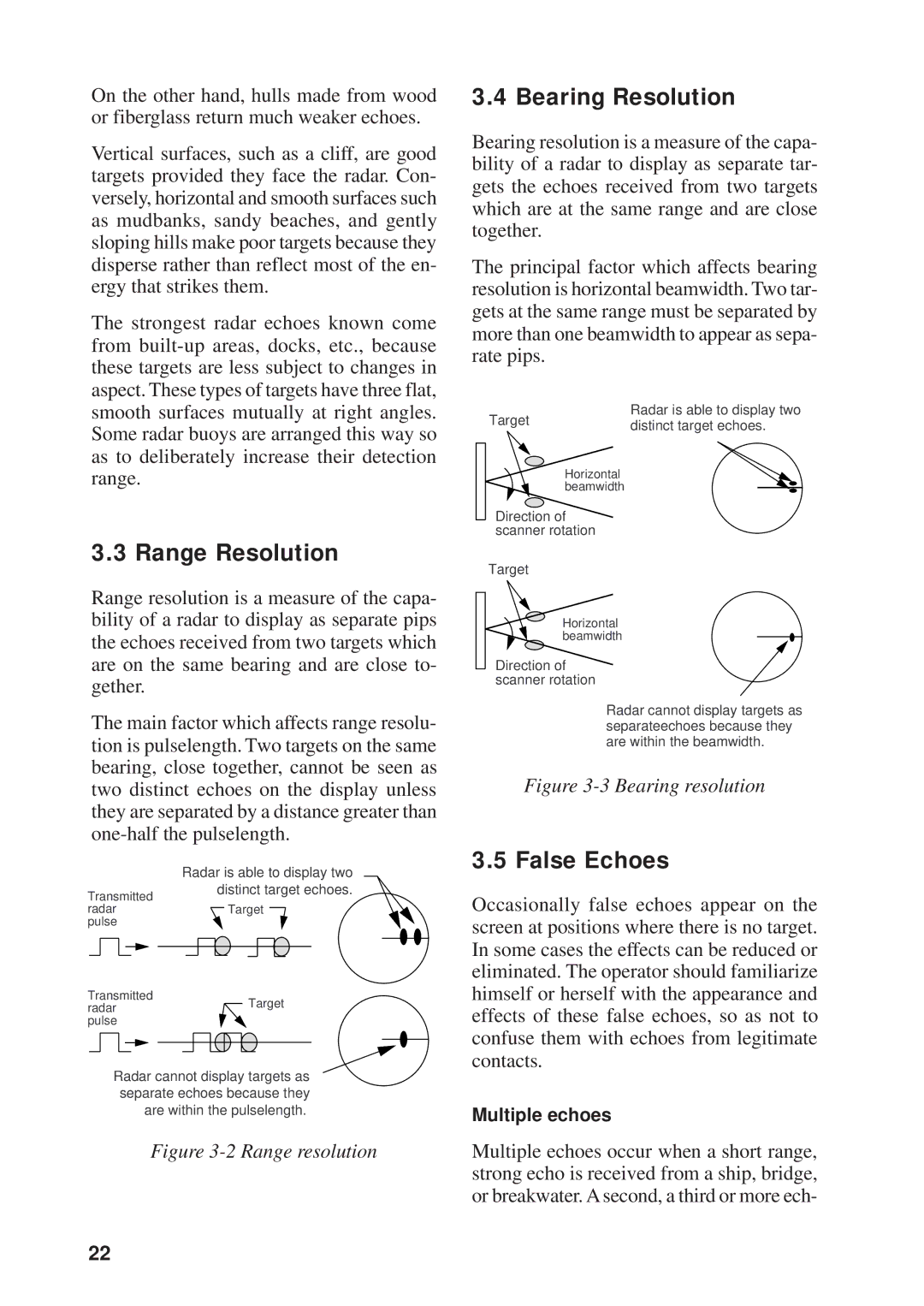
On the other hand, hulls made from wood or fiberglass return much weaker echoes.
Vertical surfaces, such as a cliff, are good targets provided they face the radar. Con- versely, horizontal and smooth surfaces such as mudbanks, sandy beaches, and gently sloping hills make poor targets because they disperse rather than reflect most of the en- ergy that strikes them.
The strongest radar echoes known come from
3.4 Bearing Resolution
Bearing resolution is a measure of the capa- bility of a radar to display as separate tar- gets the echoes received from two targets which are at the same range and are close together.
The principal factor which affects bearing resolution is horizontal beamwidth. Two tar- gets at the same range must be separated by more than one beamwidth to appear as sepa- rate pips.
smooth surfaces mutually at right angles. Some radar buoys are arranged this way so as to deliberately increase their detection range.
3.3 Range Resolution
Target
Horizontal beamwidth
Direction of scanner rotation
Target
Radar is able to display two distinct target echoes.
Range resolution is a measure of the capa- bility of a radar to display as separate pips the echoes received from two targets which are on the same bearing and are close to- gether.
The main factor which affects range resolu- tion is pulselength. Two targets on the same bearing, close together, cannot be seen as two distinct echoes on the display unless they are separated by a distance greater than
Horizontal beamwidth
Direction of scanner rotation
Radar cannot display targets as separateechoes because they are within the beamwidth.
Figure 3-3 Bearing resolution
Transmitted radar pulse
Transmitted radar pulse
Radar is able to display two distinct target echoes.
![]() Target
Target
Target
3.5 False Echoes
Occasionally false echoes appear on the screen at positions where there is no target. In some cases the effects can be reduced or eliminated. The operator should familiarize himself or herself with the appearance and effects of these false echoes, so as not to confuse them with echoes from legitimate contacts.
Radar cannot display targets as separate echoes because they are within the pulselength.
Figure 3-2 Range resolution
Multiple echoes
Multiple echoes occur when a short range, strong echo is received from a ship, bridge, or breakwater. A second, a third or more ech-
22
